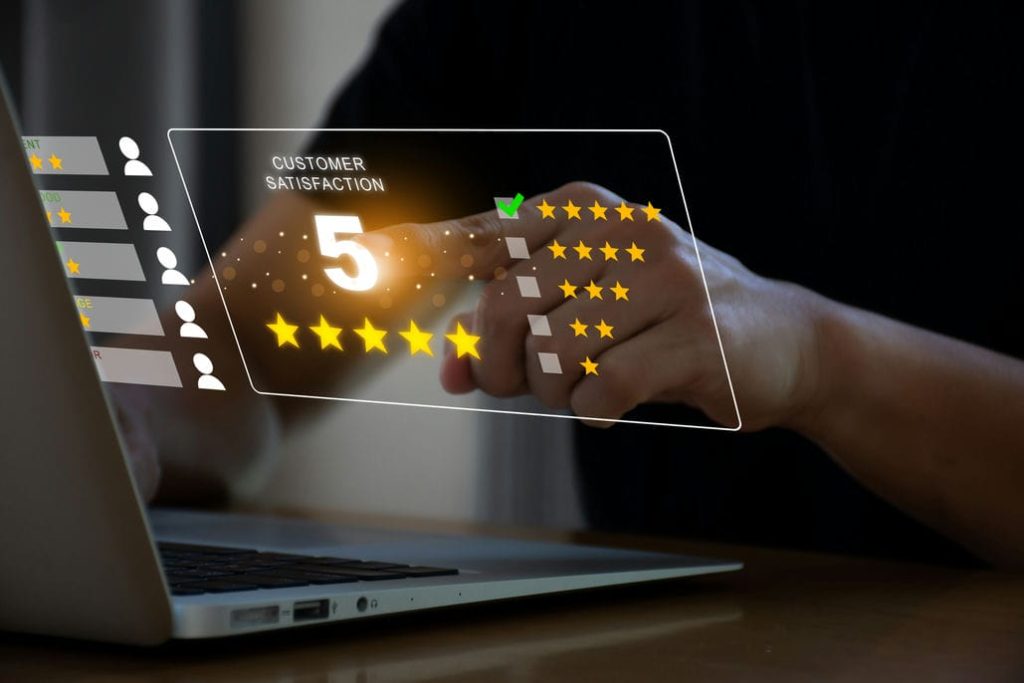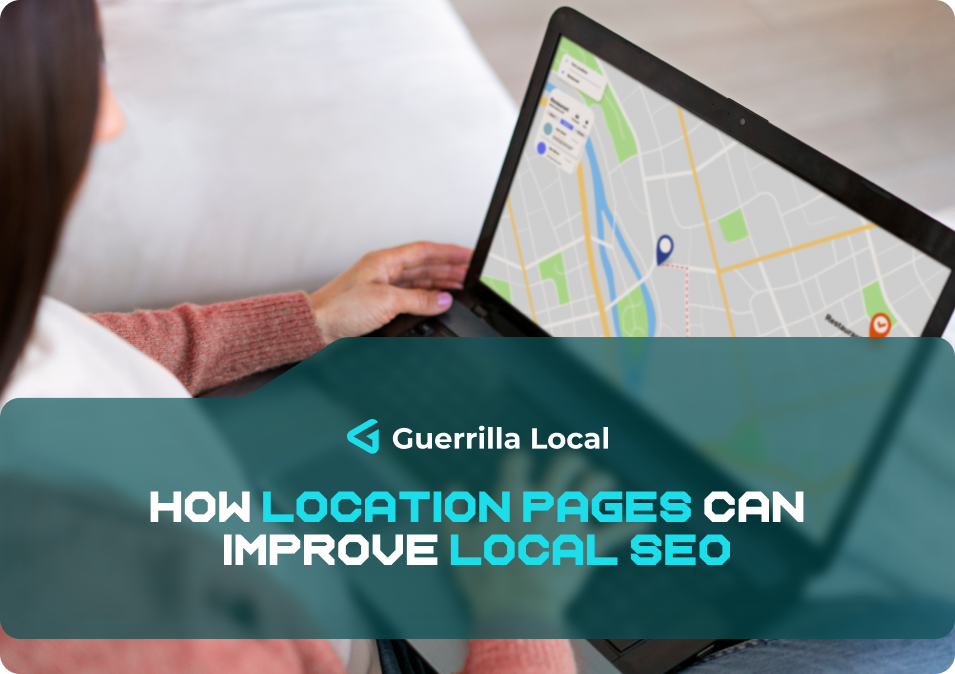The digital landscape is constantly evolving, and with it, the strategies for search engine optimization (SEO) are also changing. Among these strategies, the role of location pages in improving local SEO has become increasingly significant.
Quick Answer: Location pages enhance local SEO by targeting local keywords, improving relevance, and boosting credibility. They generate local backlinks, while tactics like Google My Business, business directories, online reviews, mobile-friendly websites, and location-specific content further optimize online presence for local searches, driving business growth. Contact us for Milwaukee local SEO support.
But what exactly are location pages, and how can they boost your local SEO efforts?
Table of Contents
What is Local SEO?
Local SEO is a digital marketing strategy that focuses on enhancing the visibility of your business in local search results.

It involves optimizing your online presence to target potential customers in your geographical area.
By leveraging local SEO, businesses can ensure that they appear prominently when users search for products or services near their location.
How a Location Page Helps
A location page is a dedicated webpage on your website that provides detailed information about a specific physical location of your business. These pages serve as a bridge between your online presence and your physical store or office. Here’s how they help:
Location-specific content: Location pages allow you to showcase details about your business’s physical address, contact information, operating hours, and any special features unique to that location.

Optimized for local keywords: When you create a location page, you can target specific local keywords related to that area. This makes it more likely for your business to appear in local search results.
Improved user experience: Providing location-specific information on your website enhances the user experience, making it easier for potential customers to find and engage with your business.
1. Target Local Keywords
Identifying effective local keywords is a key component of Local SEO. These are phrases and terms that potential customers in a specific area are likely to use when searching for products or services.
For instance, “best coffee shop in downtown Los Angeles” targets a specific geographic area. Businesses need to research and identify these keywords to effectively optimize their online content and improve their local search rankings.
2. Improve Relevance
To increase local relevance, businesses need to tailor their content and SEO strategies to the specific areas they serve. This includes using local keywords, creating location-specific content, and engaging with local community events and news.
By doing so, businesses can show search engines that they are a relevant and integral part of the local community, thus improving their local search rankings.
3. Increase Credibility
Establishing trust and authority locally involves building a strong reputation within the local community. This can be achieved through consistently providing excellent service or products, engaging with local customers via social media and local events, and accumulating positive reviews on various platforms.
Trust and authority not only attract more customers but also improve Local SEO as search engines tend to favor businesses that are well-regarded in their communities.
4. Generate Local Backlinks
Local backlinks, which are links from other local businesses or organizations, play a significant role in Local SEO. They act as a signal to search engines that a business is recognized and endorsed by other entities in the area, which can boost its visibility in local search results.
Building relationships with other local businesses and participating in local events can lead to natural backlink opportunities.
More Local SEO Tactics to Consider
In addition to creating location pages, there are other essential local SEO tactics to consider:
1. Create Google My Business Profile
Creating a Google My Business (GMB) profile is one of the most effective tactics for Local SEO. A GMB profile acts as the online storefront for a business in Google’s ecosystem. It allows businesses to manage their online presence across Google, including Search and Maps. To optimize the GMB profile, businesses should:
- Claim and Verify the Business: Ensure that the business is verified on Google to gain full control over the profile.
- Provide Accurate and Comprehensive Information: Include detailed information such as business hours, contact details, address, and a description of the services or products offered.
- Add Photos and Videos: Visual content can increase engagement and provide a clearer picture of the business.
- Regularly Update Information: Keep all details up-to-date, especially during holidays or special events.
- Respond to Reviews: Engage with customers by responding to reviews, showing that the business values feedback.
2. Local Business Directories
Listing a business in local directories is another important tactic. These directories are often considered authoritative by search engines and can provide valuable backlinks, helping to improve a business’s online visibility. To effectively use local business directories:
- Select Relevant Directories: Choose directories that are relevant to the business’s location and industry.
- Maintain Consistency in NAP: Ensure the Name, Address, and Phone Number are consistent across all directories.
- Provide as Much Information as Possible: Include a detailed business description, working hours, and any other relevant information.
- Regularly Update Listings: Keep the information current and accurate.
3. Online Reviews

Online reviews significantly influence Local SEO and customer decision-making. Encouraging satisfied customers to leave positive reviews on platforms like Google, Yelp, and Facebook can improve a business’s local search rankings. To manage online reviews:
- Ask for Reviews: Encourage customers to leave reviews after a purchase or service.
- Respond to Reviews: Engage with all reviews, both positive and negative, in a professional manner.
- Monitor Reviews Regularly: Keep an eye on what customers are saying to understand their experiences and expectations.
4. Mobile-Friendly Website

With the majority of local searches conducted on mobile devices, having a mobile-friendly website is critical. A mobile-friendly site should:
- Load Quickly: Ensure the website has fast loading times to reduce bounce rates.
- Be Easy to Navigate: The site should be easy to use on a small screen, with accessible menus and clickable elements.
- Be Responsive: The design should adapt seamlessly to different screen sizes and orientations.
- Include Click-to-Call Buttons: Make it easy for users to contact the business directly from their mobile device.
5. Location-Specific Content
Creating location-specific content can greatly enhance Local SEO efforts. This involves crafting content that resonates with the local community and addresses their specific interests or needs. To do this:
- Understand the Local Audience: Know what is relevant and interesting to the local customers.
- Create Local Landing Pages: If the business serves different areas, create separate landing pages for each location with specific local content.
- Participate in Local Events: Share experiences, sponsorships, or participation in local events, highlighting the business’s involvement in the community.
- Use Local Keywords: Incorporate local keywords naturally into the website content, blog posts, and meta descriptions.
Contact Us for Milwaukee Local SEO Support
Are you ready to take your local SEO game to the next level? Contact our team of experts in local SEO support.
We have the knowledge and experience to help your business thrive in the local digital landscape.
Conclusion
Location pages are a powerful tool for improving your local SEO strategy. By optimizing your online presence for local keywords, enhancing relevance, and building credibility, you can attract more local customers and grow your business.
Combine location pages with other local SEO tactics for the best results, and consider seeking professional support to maximize your local SEO efforts.
FAQs
Q: How do I choose the right local keywords for my location pages?
A: Start by conducting keyword research using tools like Google Keyword Planner and consider phrases that potential customers might use to find businesses in your area.
Q: Can I create a single location page for multiple branches of my business?
A: It’s best to create separate location pages for each branch or physical location to provide accurate and detailed information.
Q: How do I encourage customers to leave positive online reviews?
A: Provide excellent customer service, ask satisfied customers to leave reviews, and make it easy for them by sharing direct review links.
Q: Should I hire a professional for local SEO support?
A: Hiring a local SEO expert can be a valuable investment, as they have the expertise to optimize your strategy effectively.
Q: How long does it take to see results from local SEO efforts?
A: The timeline for seeing results can vary, but with consistent effort, you can expect improvements in local search rankings within a few months.
Q: Is mobile optimization essential for local SEO?
A: Yes, mobile optimization is crucial, as many users search for local businesses on their mobile devices.






